Though it’s long emphasized hybrids, Toyota has plenty of battery-electric vehicles coming before the end of the decade and one of the most significant moves will see the automaker’s popular Highlander model go all-electric when the next-generation SUV comes out around 2027, Headlight.News reports.
With the launch of the 2025 4Runner, Toyota now has fully 19 different hybrid models in its line-up. Some, like the new Camry and Crown Signia, are offered only in gas-electric form.
But, despite its focus on delivering a “mixed” line-up of electrified vehicles – including hybrids, plug-in hybrids and even hydrogen fuel-cell vehicles – Toyota plans to begin rolling out an assortment of new battery-electric vehicles, ranging from compact sedans to full-size pickups.
One of the most dramatic moves, Headlight.News has learned, will see the next-generation Toyota Highlander offered solely in EV form. The three-row Grand Highlander, however, will continue to be offered with a mix of powertrains, including hybrid and plug-in, according to well-placed insiders who offered insight into the automaker’s electrification strategy.
A strategy in transition
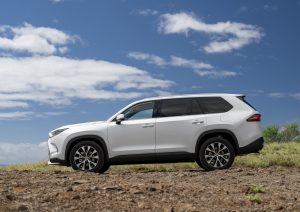
The next Toyota Highlander is scheduled to go all-electric. Look for HEV and PHEV versions of the bigger, 3-row Grand Highlander seen here.
Until recently, Toyota had undisguised disdain for battery-electric vehicles, Former CEO Akio Toyoda went so far as to warn that a switch to battery-electric vehicles would “destroy” the Japanese auto industry during his tenure as the head of JAMA.
His successor, Koji Sato, has been a bit less strident in his opposition to EVs — but he remains committed to a “mixed” strategy that includes a substantial number of conventional hybrids, plug-in hybrids and fuel-cell vehicles.
The problem for Toyota is that regulators in key markets, including the U.S., Europe and China, are putting in place increasingly aggressive emissions standards. That means a complete switch to EVs by 2035 in the European Union. The Biden Administration recently slowed its own transition to battery-electric vehicles but still expects them to account for as much as two-thirds of all new vehicle sales by 2032.
That’s a key reason why, said one high-ranking Toyota official, “We keep revising our plans.”
Meeting customer expectations
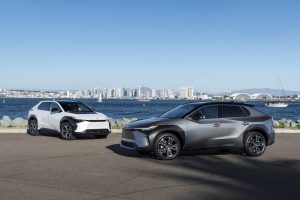
Currently, the automaker offers only two EVs in the U.S., the Toyota-badged bZ4X, seen here, and the Lexus RZ.
It’s not the only reason, however. The response to Toyota’s first all-electric entries into the U.S. market have been mixed, at best. Both the Toyota-badged bZ4X and Lexus RZ have taken hits for lackluster styling, as well as middling performance and range. In a conversation with Headlight.News earlier this month, Toyota brand boss David Christ acknowledged the company is taking feedback into account as it works up future models.
Even before he retired last year, CEO Toyoda ordered a shake-up in the Toyota EV program that will see it replace the current platform used by the bZ4X and RZ models, while next-generation batteries are a top priority, as well.
“We’re preparing enhancements and improvements, just like we do on our other cars,” said Christ. “I think you’re going to see better bZs in the future.”
More Toyota News
- First Drive: Hybrid Power Takes the 2025 Toyota Camry to a New Level
- First Look: 2025 4Runner: More Power, More Features, More Options
- Winning Over Skeptics: A Week with the New Toyota Prius
In for a wait
The question is when those future EVs will reach U.S. showrooms. The answer, according to Toyota insiders and other well-informed sources is: not for a couple years. We won’t see anything new from Toyota until at least 2026.
The next model set to reach U.S. showrooms will be a compact, or C-segment, battery-electric crossover. Using that nomenclature it is expected to be called the bZ3X – though Christ cautiously suggested Toyota may reconsider the current naming strategy.
Toyota also is scheduling a C-segment sedan to launch around the same time. And a similarly sized crossover for the Lexus brand is likely to reach the U.S. later in the year or in early 2027.
Opening the floodgates
The pace should then start accelerating, insiders said. There will be the new, all-electric Highlander, for one thing. And Toyota appears to have several other SUVs and passenger models in the works for later this decade.
Toyota is moving forward with work on an EV version of the full-size Tundra, as well. But it is hesitant about taking it into production and is closely watching how the market embraces similar offerings. The segment now includes products such as the Ford F-150 Lightning, the Rivian R1T, the Chevrolet Silverado EV and the Tesla Cybertruck. Initial demand appeared strong but has withered in recent months – and there are still other entries coming, including the GMC Sierra EV and Ram 1500 REV.
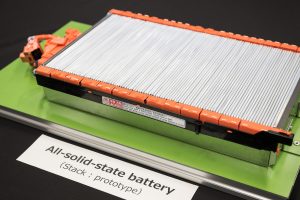
Toyota is looking to push up both the launch of production and the rate of adoption, seeing the technology as essential to its goal of selling 3.5 million EVs a year worldwide by 2030.
Toyota also is considering an all-electric version of the midsize Tacoma, and even a compact pickup. These are “not off the table,” said a source, though Toyota planners question whether they can deliver competitive offerings were they to use today’s lithium-ion cells.
Battery breakthrough
How Toyota moves forward is likely to depend upon achieving some breakthroughs in battery technology. The Japanese automaker has one of the most aggressive programs currently underway aimed at developing next-gen cell chemistry, and the primary focus is on solid-state. These batteries are expected to yield significant improvements in terms of range, reliability, charging times and cost. But many industry experts such as Sam Fiorani, of AutoForecast Solutions, doesn’t expect to see solid-state technology in widespread use until decade’s end – and perhaps even well into the 2030s.
Toyota is more upbeat. It has gone on the record indicating a goal of commercializing the technology by as early as 2027, albeit at low production volumes. The current plan, sources confirmed, is to use solid-state batteries for a high-performance sports car tentatively called the Lexus LC Sport. Toyota announced a year ago a goal of using the technology for a vehicle getting 600 miles or more range.
Vindication
While Toyota officials continue to insist the best way to meet customer demand – and drive down CO2 emissions – is to go with a mix of different electrified vehicle technologies.
That strategy played out well a decade ago but has come under increasing fire from environmental groups like the Sierra Club and the NRDC. Now, however, Toyota officials say they feel vindicated by what’s happening in the marketplace. EV sales growth has slowed in most key markets over the past year. And demand actually dropped in the U.S. during the first quarter – though that was largely due to Tesla. On the other hand, hybrid sales have surged to record levels, with the combined market share for conventional and plug-in models now ahead of that for pure EVs.
The Biden administration, notably, has revised auto emissions plans for the rest of the decade, slowing down the requisite growth rate for all-electric models. It still wants EVs to reach a market share of 67% by 2032 – but, in a marked compromise, automakers will be allowed to set a slightly lower target as long as they hit 15% with PHEVs.
More plug-in hybrids
Toyota plans to take advantage of that shift. “We’re going to expand plug-in availability throughout the line-up fairly quickly,” Christ told Headlight.News. While he didn’t name names, Toyota sources said the next models to get PHEV options will be the Sequoia SUV and Tundra and Tacoma pickups.
Even with those PHEVs, however, Toyota could struggle to meet the upcoming U.S. mandates. The company has a public goal of reaching just a 30% EV share of sales by 2030.
A senior company official said he doubts the U.S. can come close to the Biden target for 2032. Toyota is clearly hoping – and lobbying – for a rollback. But, barring a continued slowdown in EV sales growth, the White House seems determined to stay the course. That helps explain why Toyota’s EV program remains a work in progress. It’s hedging its bets by developing options it could fall back on, if needed.

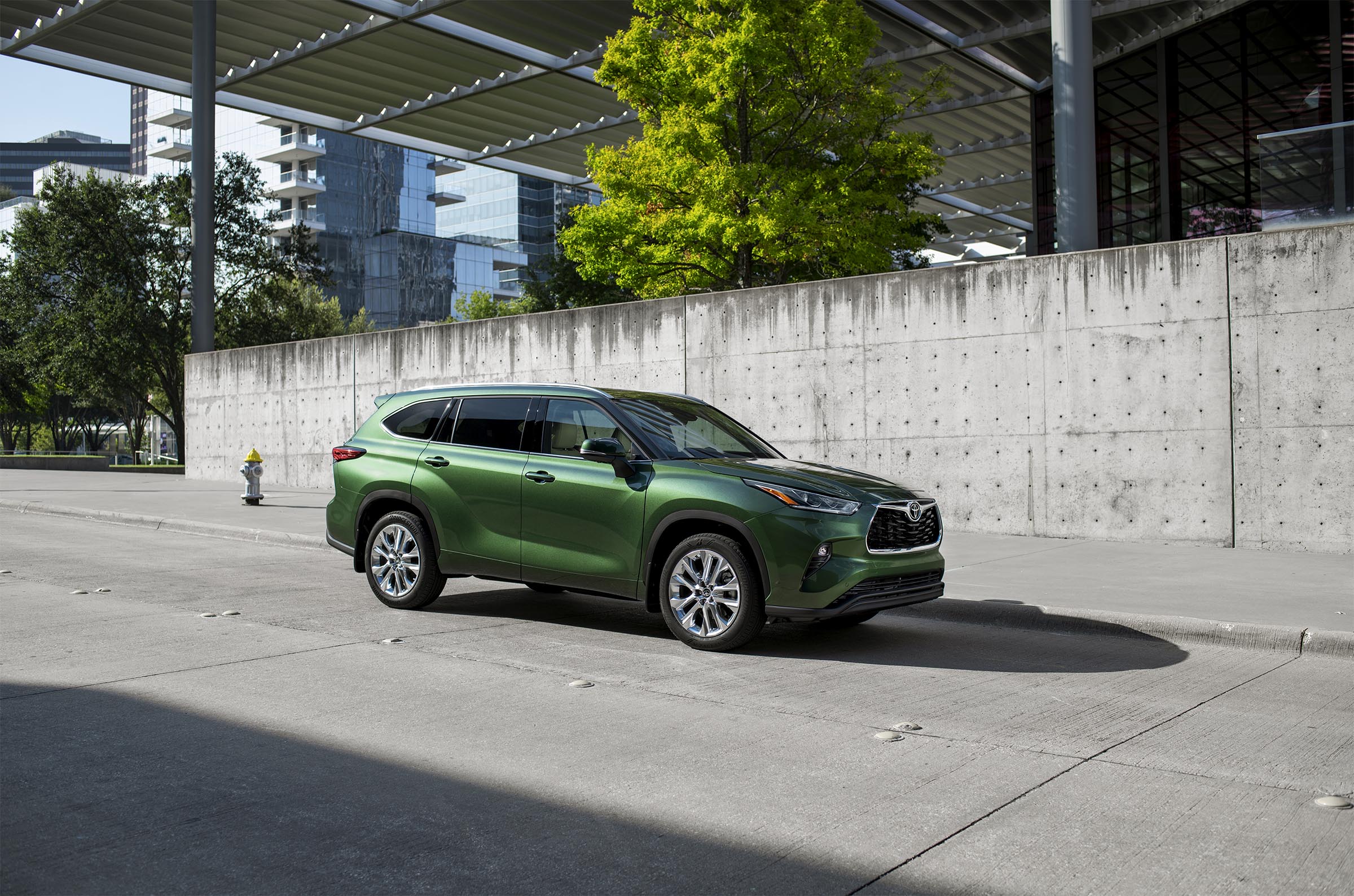
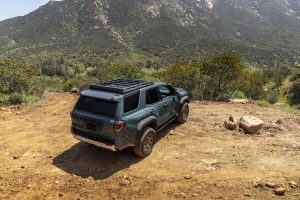
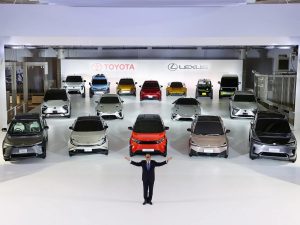
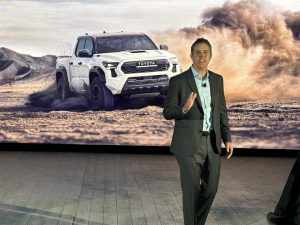

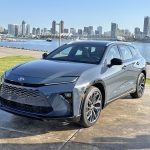
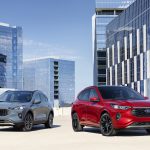
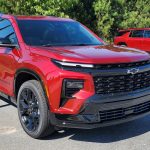

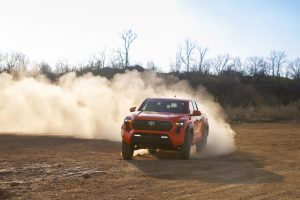
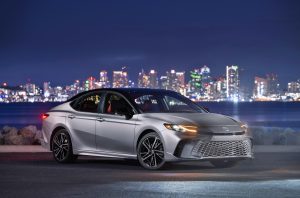

0 Comments